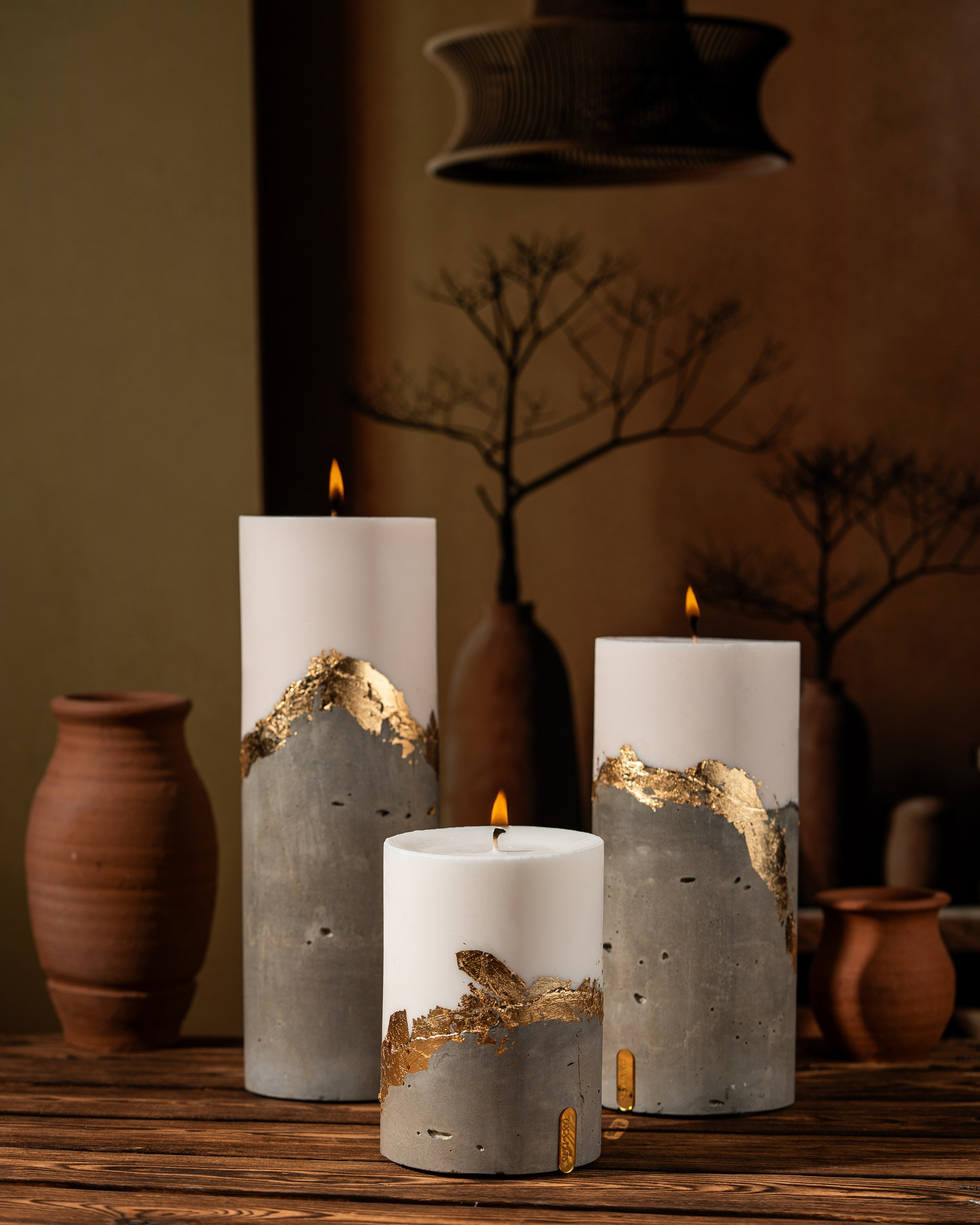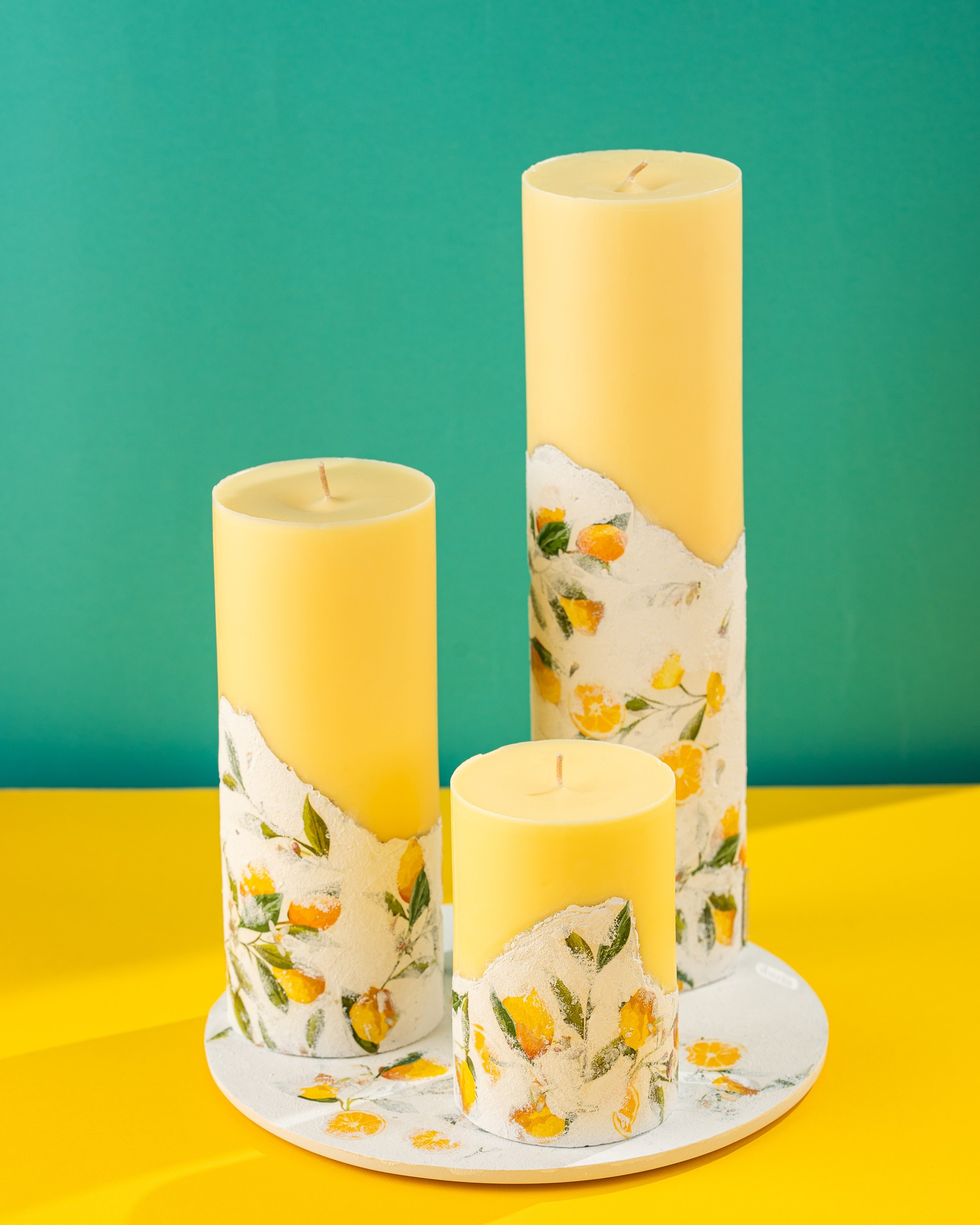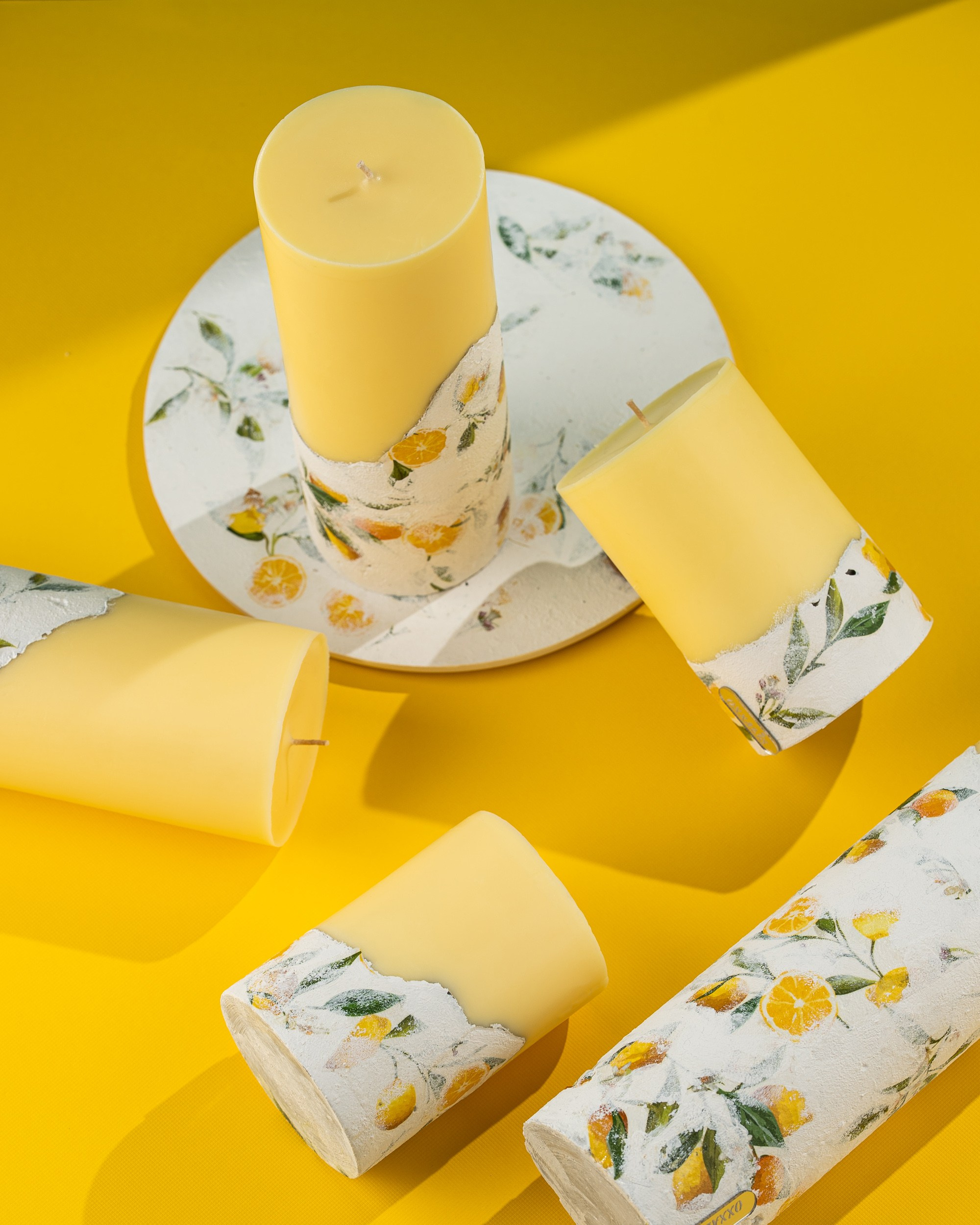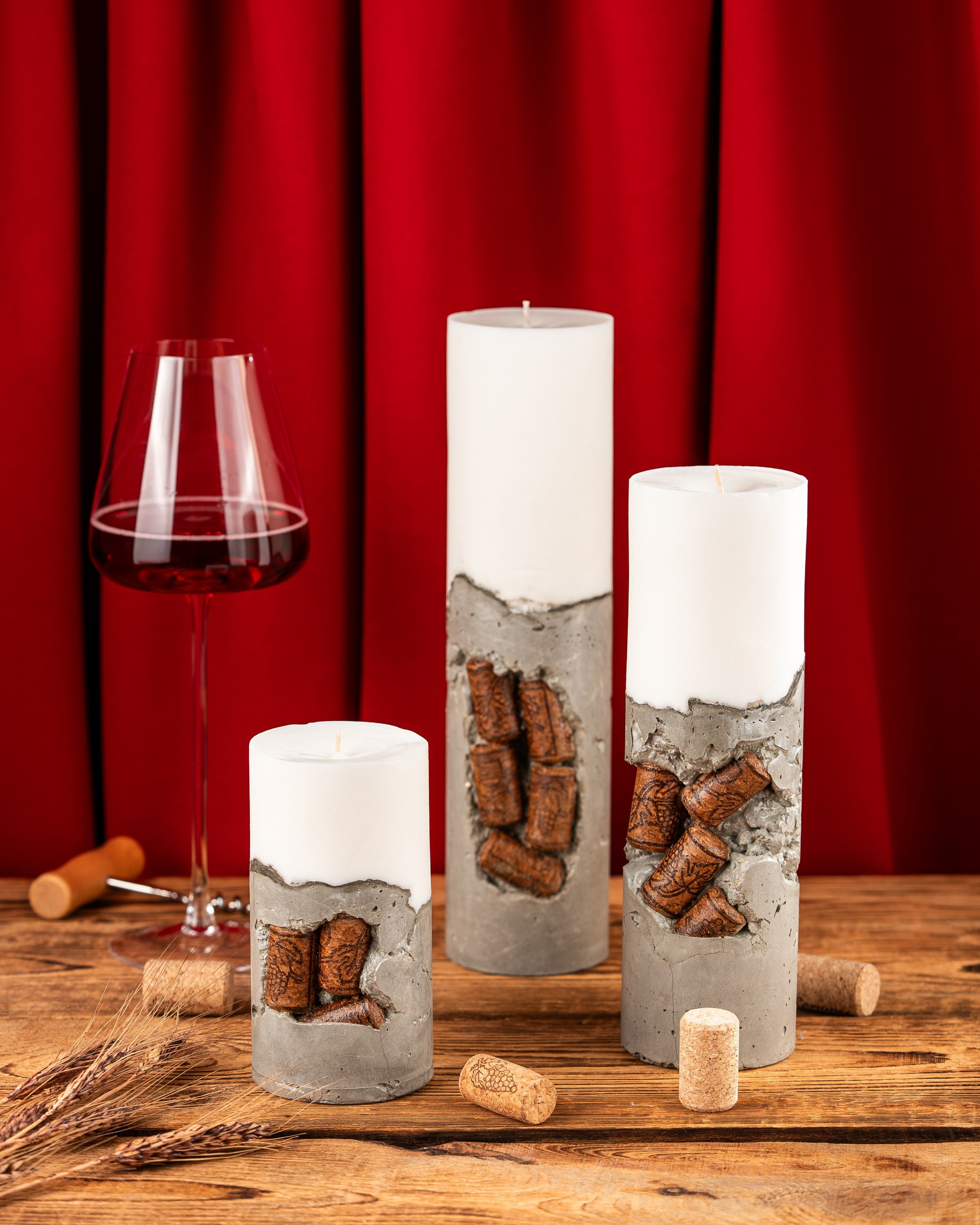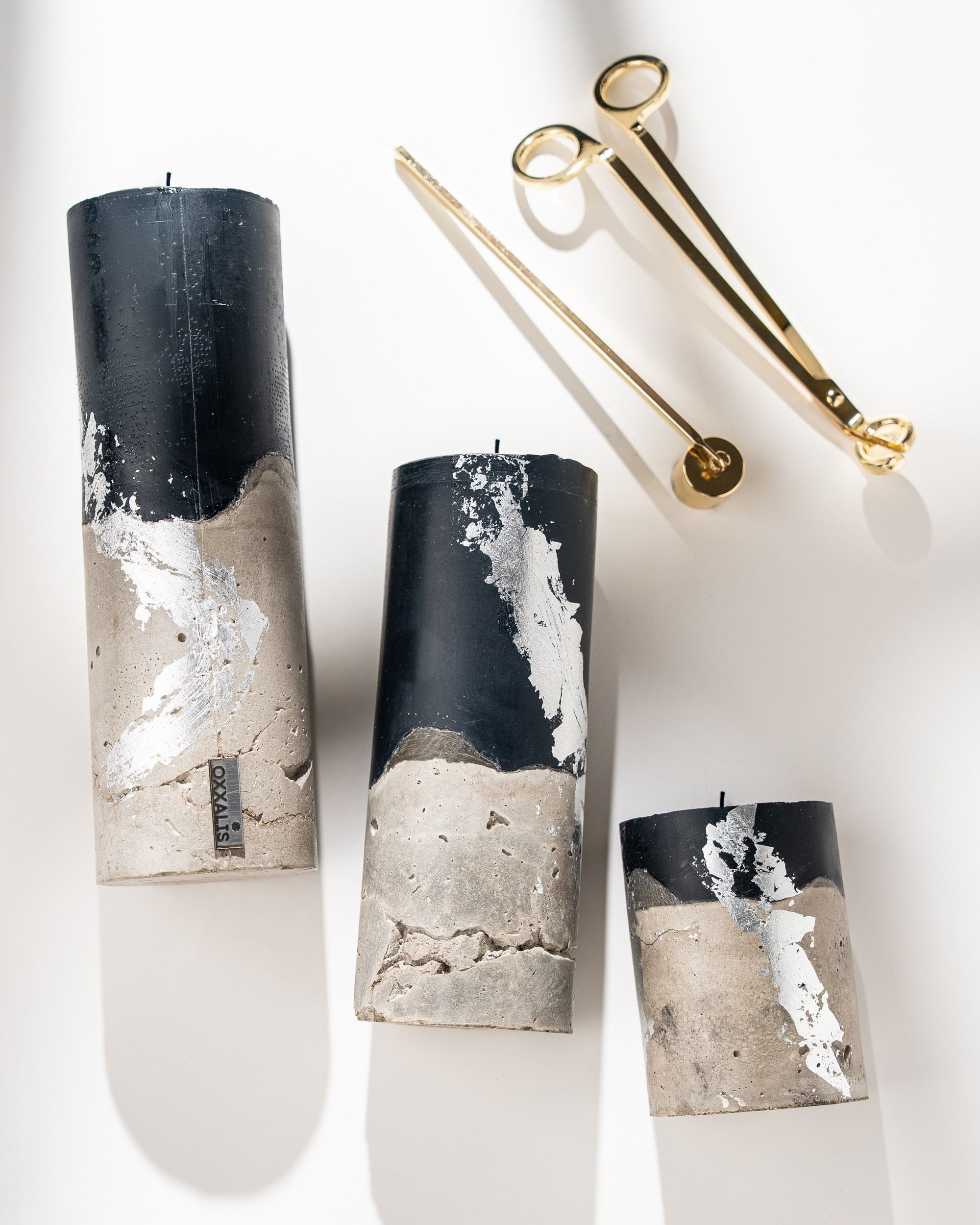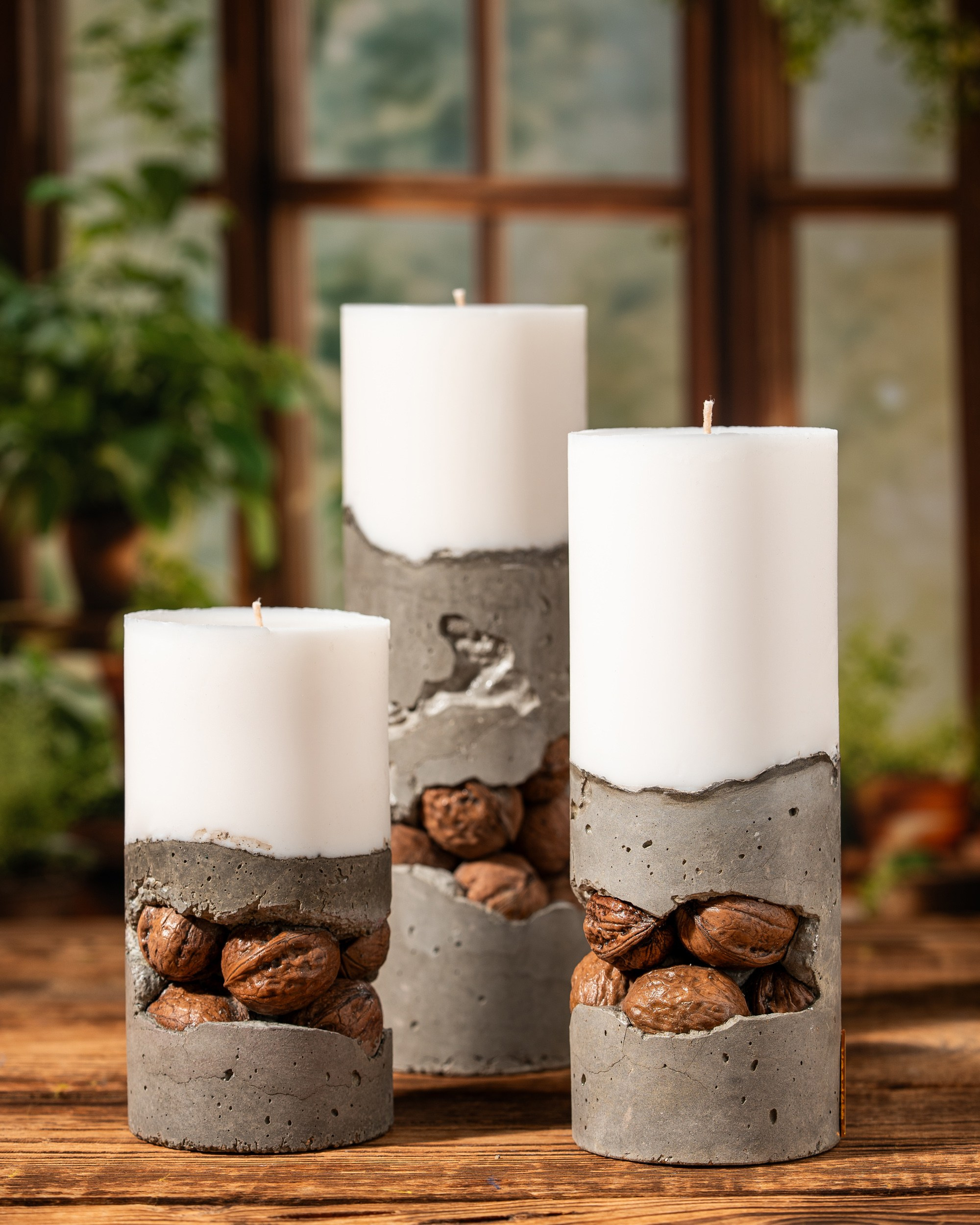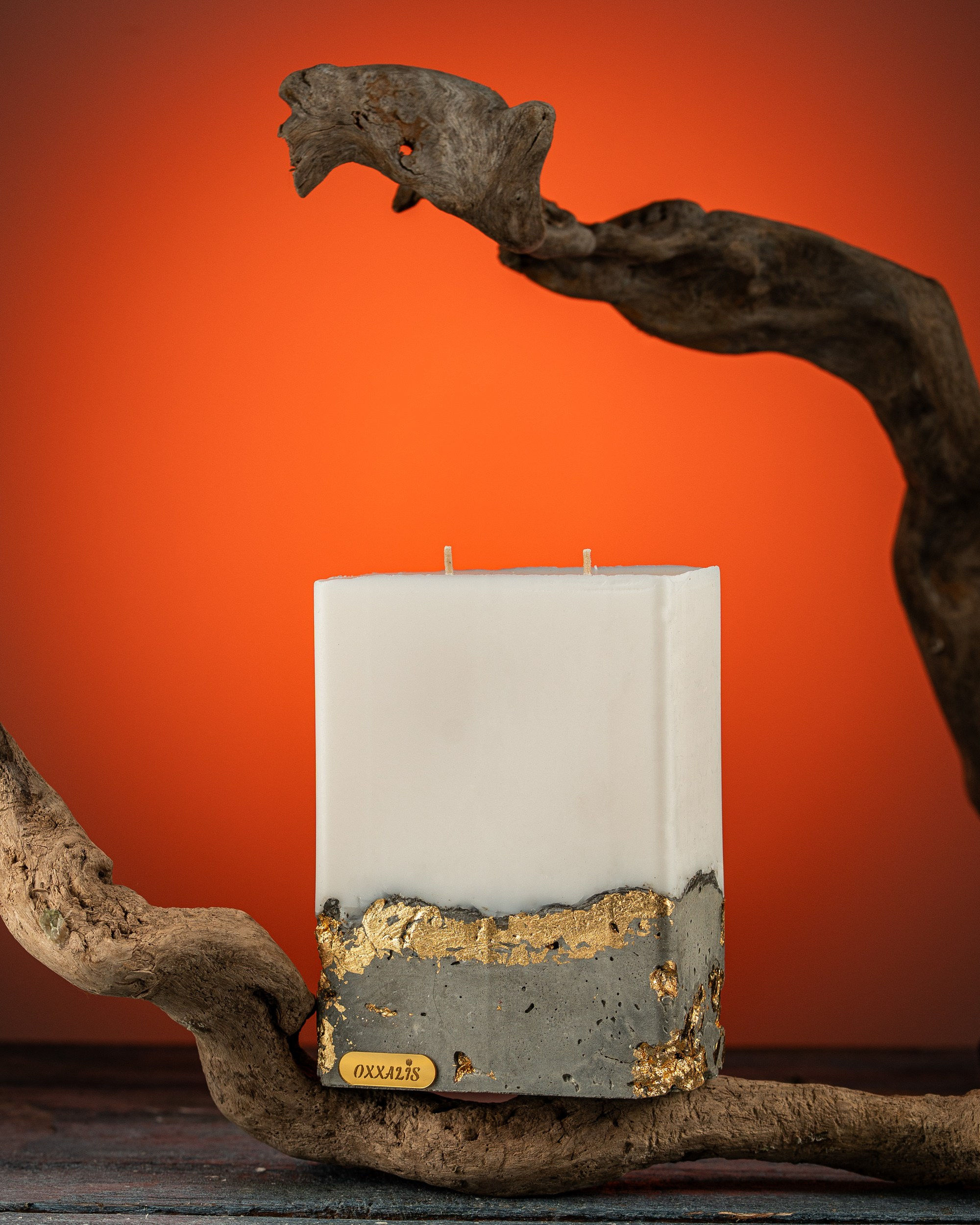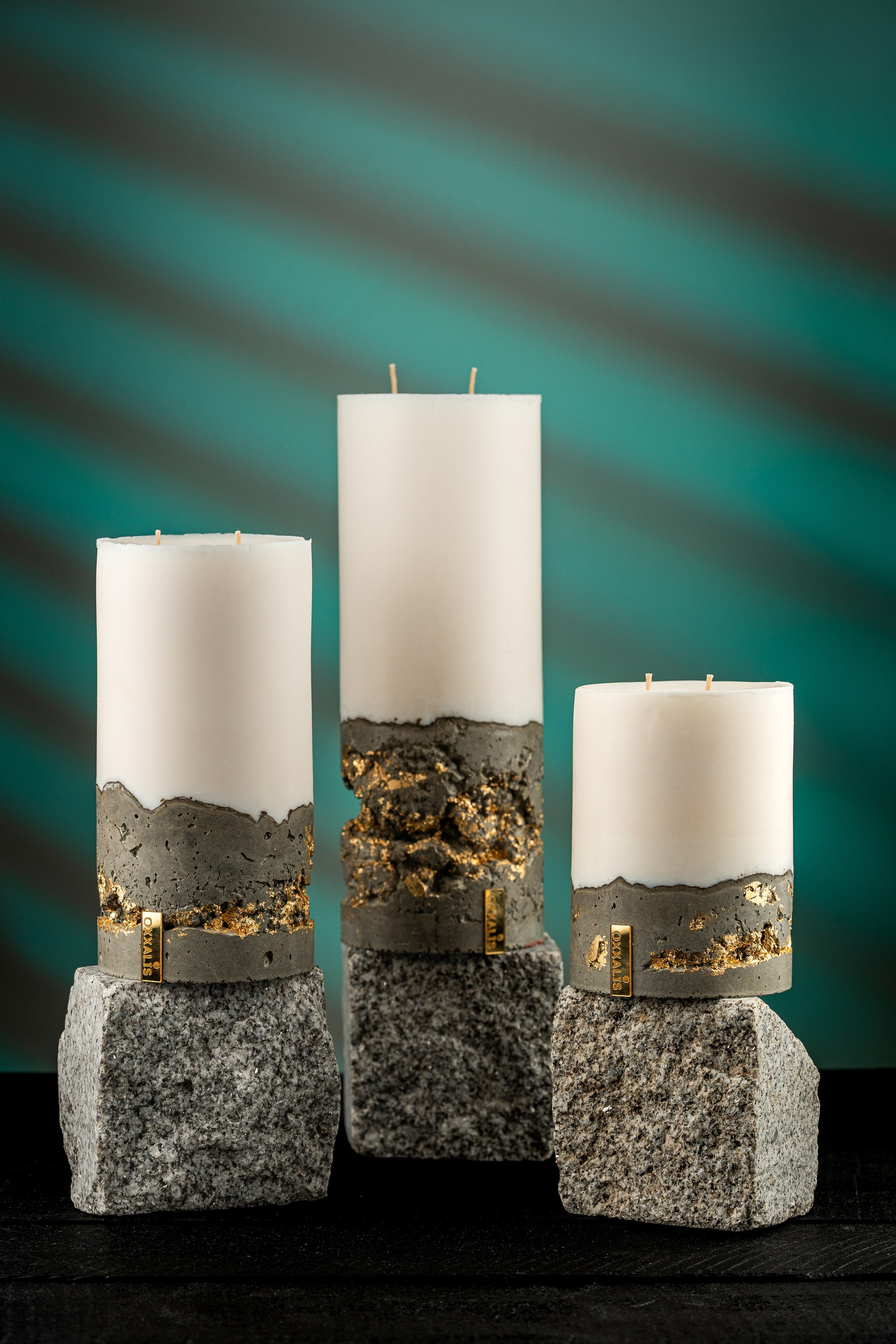With these 8 tips, you can take stunning photos of your decorative candle products.
- Keep the Background Simple and Clean. The candle’s shape, color, and design should be the main focus. Neutral-toned backgrounds like white, gray, or beige are ideal for making the candle stand out. Wooden surfaces, marble, or a simple linen cloth can also create a natural and elegant backdrop.
- Shoot Them Both Lit and Unlit. Customers want to see what the candle looks like in both states. Photos of an unlit candle accurately show its design, color, and texture. Photos of a lit candle, on the other hand, convey the warm and cozy atmosphere it creates. Remember to avoid direct light hitting the flame when taking pictures of a lit candle.
- Show Textures and Details with Close-up (Macro) Shots. Some decorative candles have unique patterns, raised surfaces, or special embellishments. Highlight these details with close-up shots to emphasize the quality and craftsmanship of your product. For example, you can take a close-up picture of the rose petals or dried fruit on the candle.
- Use Natural Light. Soft, diffused natural light is the best way to showcase the candle’s colors and details. By shooting next to a window, you can avoid harsh shadows and make the photo look more vibrant.
- Use Accessories to Tell a Story. Don’t just show the candle itself; show the ambiance it creates. Place a cup of coffee, a favorite book, or a small plant next to the candle. This emphasizes that the product is not just an item but a part of a lifestyle.
- Take “Lifestyle” Photos. Create photos that show how the candle looks in a real-life setting. For example, on a bedside table in a bedroom, on the edge of a bathtub, or on a coffee table in the living room. This helps customers imagine the product in their own homes.
- Pay Attention to Composition. In your photos, combine candles of different sizes and numbers. For example, you can arrange several small candles around a larger one to create a visually interesting composition. Using photography principles like the “Rule of Thirds” can help you take more professional photos.
- Apply Minimal Editing. To make your photos look more polished, you can slightly increase the brightness and contrast. However, do not change the candle’s original color and shine. The goal is to further emphasize the product’s true beauty.
Remember, photos of decorative candles should reflect the comfort, beauty, and warm atmosphere the product creates. By applying these tips, you can present your products more attractively in the online market.
Blog

How Product Photography Influences Buying Psychology
Before a customer messages you, checks your price, or reads your product description — they make a decision.
That...
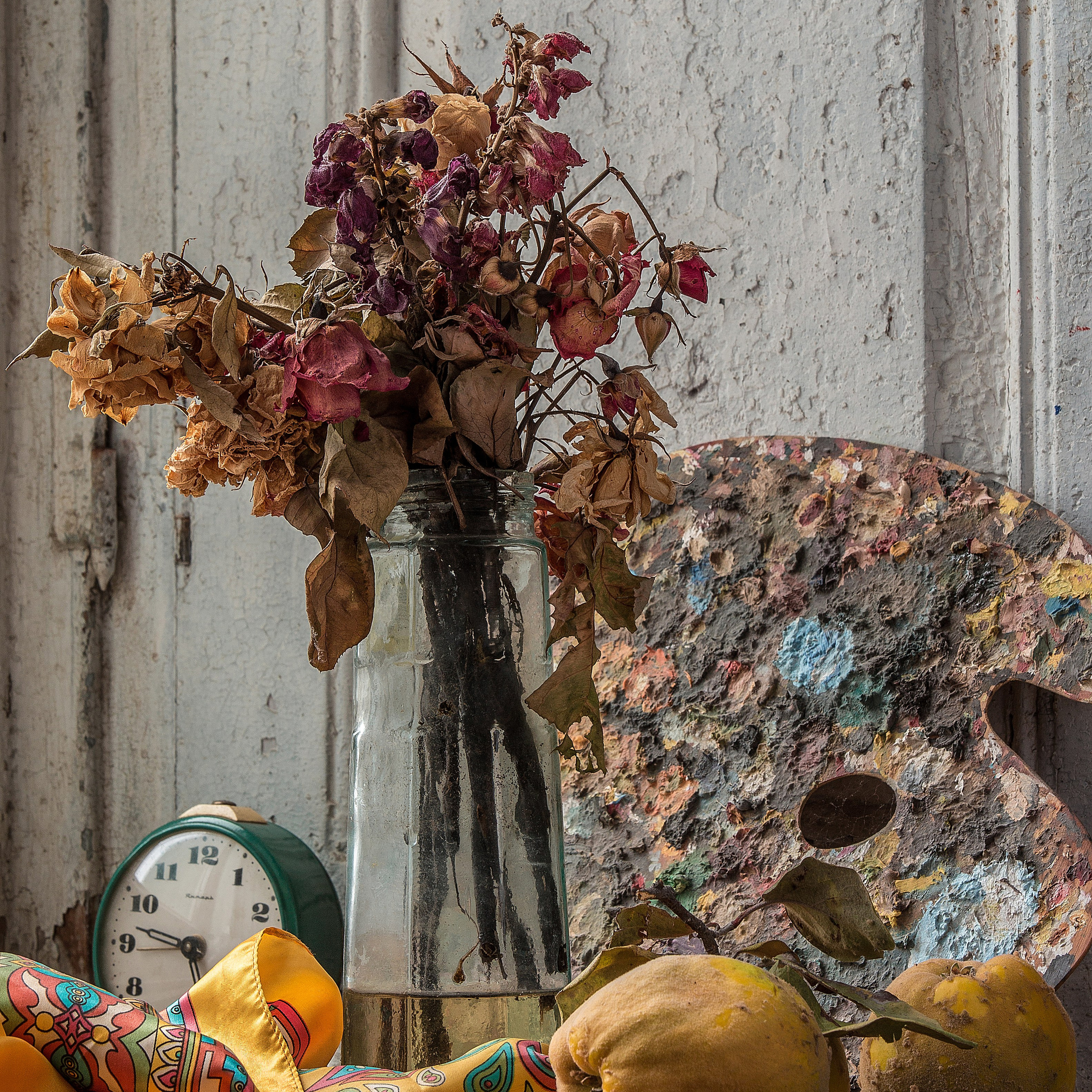
The History of the Still Life Genre
What is Still Life?
The term “still life” (from the French nature morte, meaning “dead nature”) refers to the...
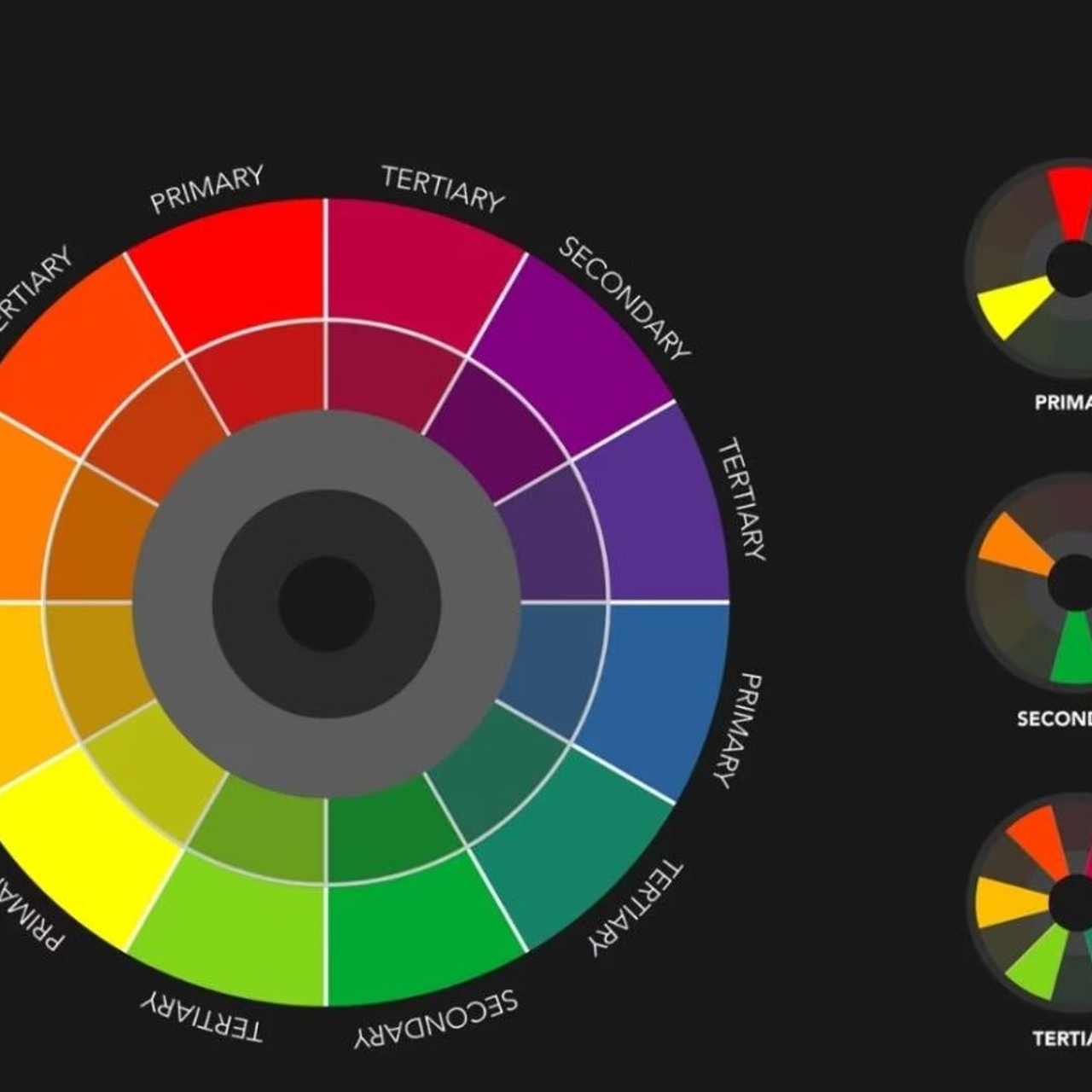
The Secret of Colors: What is the Itten Circle and Why is it Important in Photography?
Photography is not just about capturing objects, but also about the art of telling a story, evoking emotion, and...
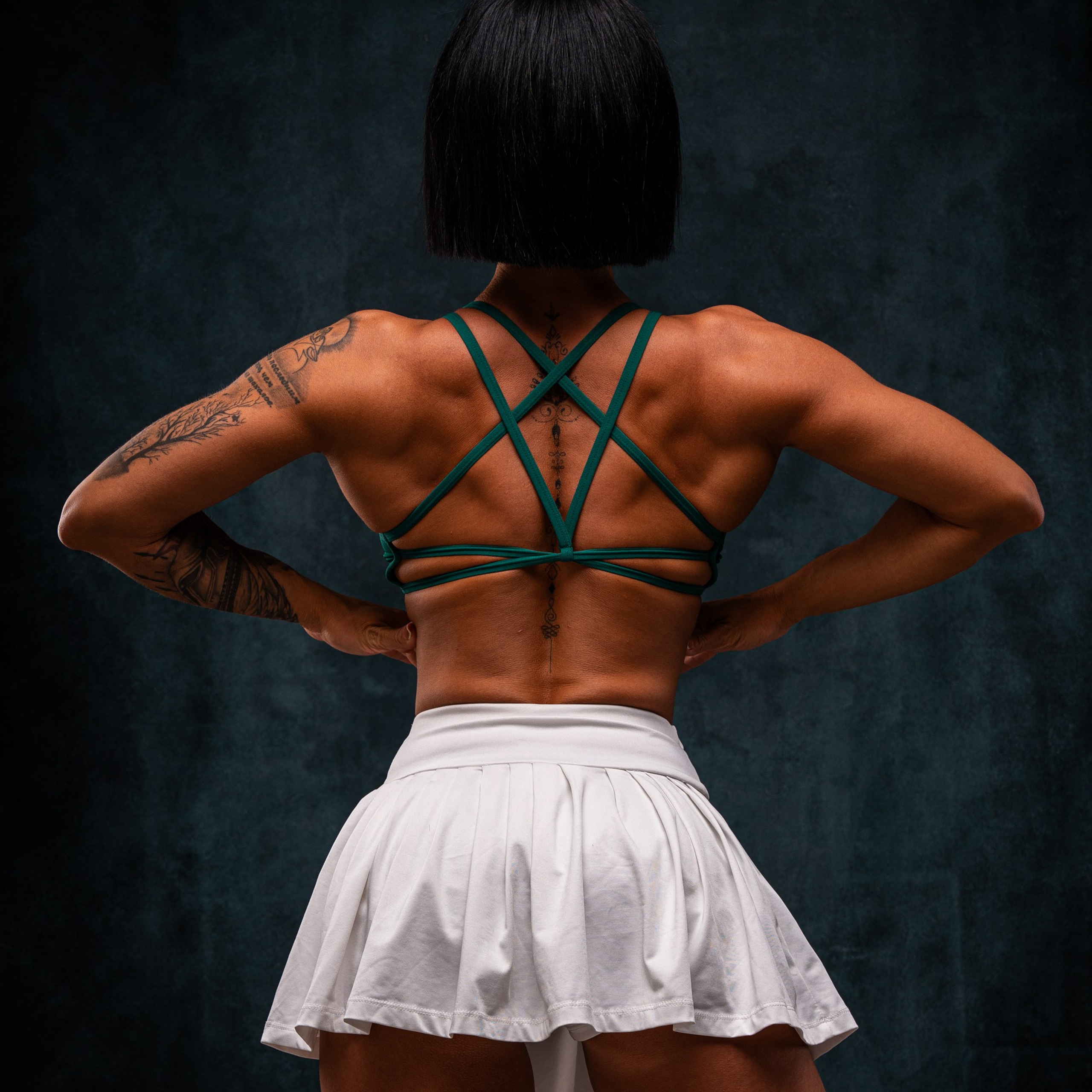
The Aesthetics of Power: Secrets to Professional Athlete Portrait Photography
An athlete’s portrait is not merely a photograph; it is an art form that reflects years of dedication, discipline,...

Christmas & Winter-Themed Product Photography
Holiday Product Photography • Winter Mood Shots • Seasonal Creative Reels
Christmas season is one of the strongest...
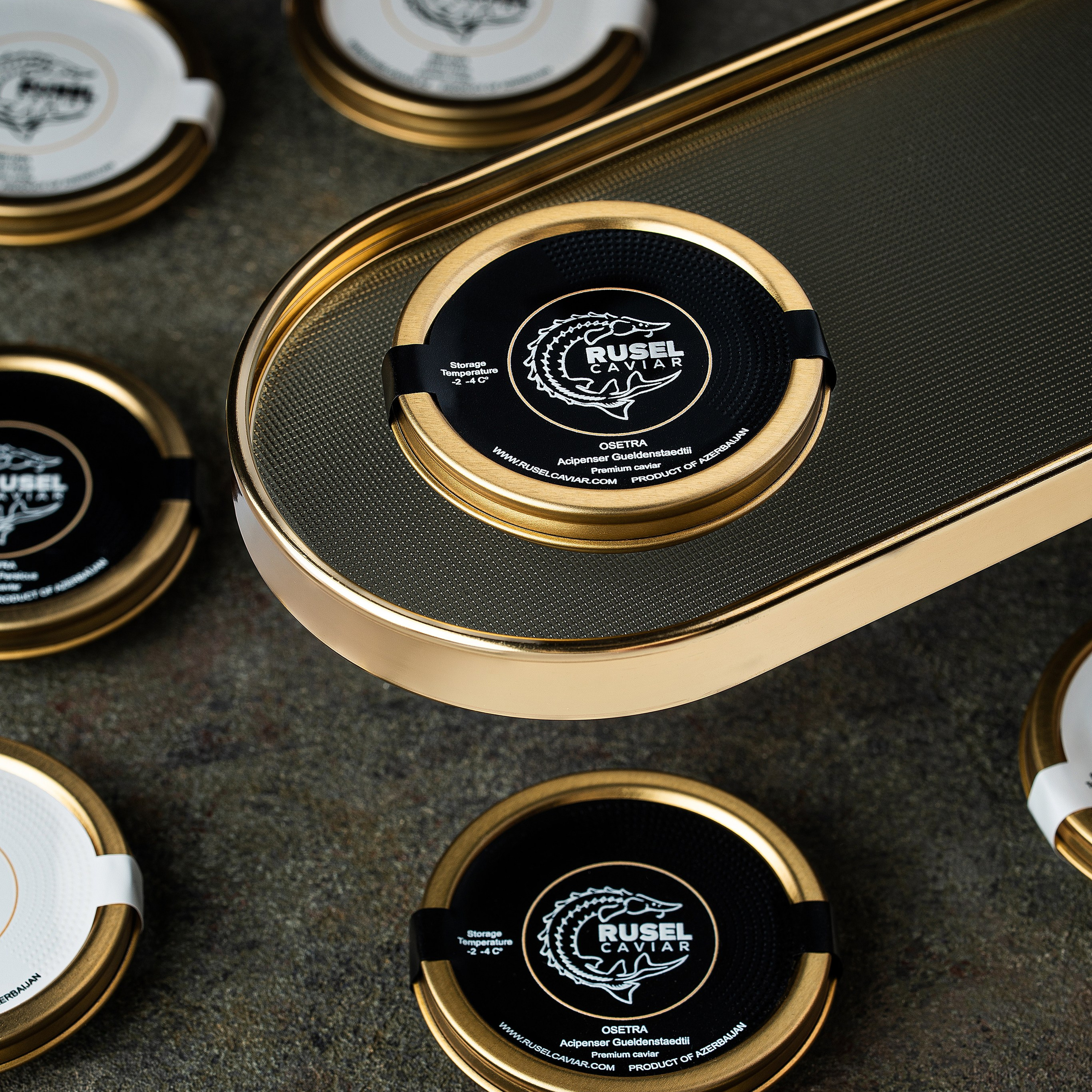
Visual Anatomy — #7: Rusel Caviar (Premium Caviar Product Photography)
This photo was built on one idea: delivering premium elegance through controlled minimalism, metallic harmony, and...
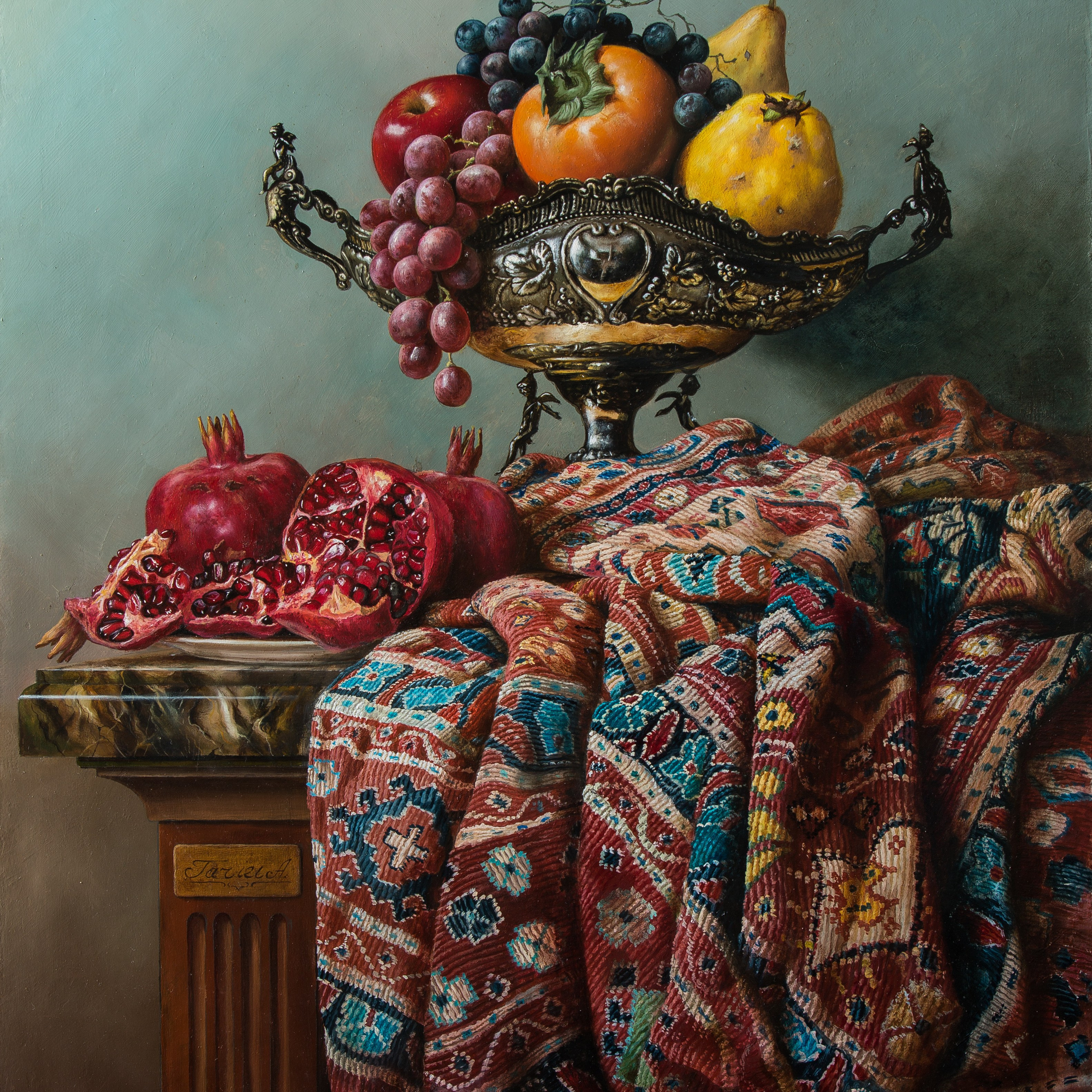
Art Reproduction Photography
A Professional Guide for Artists, Galleries, and Collectors
Why is it important and how should it be shot...
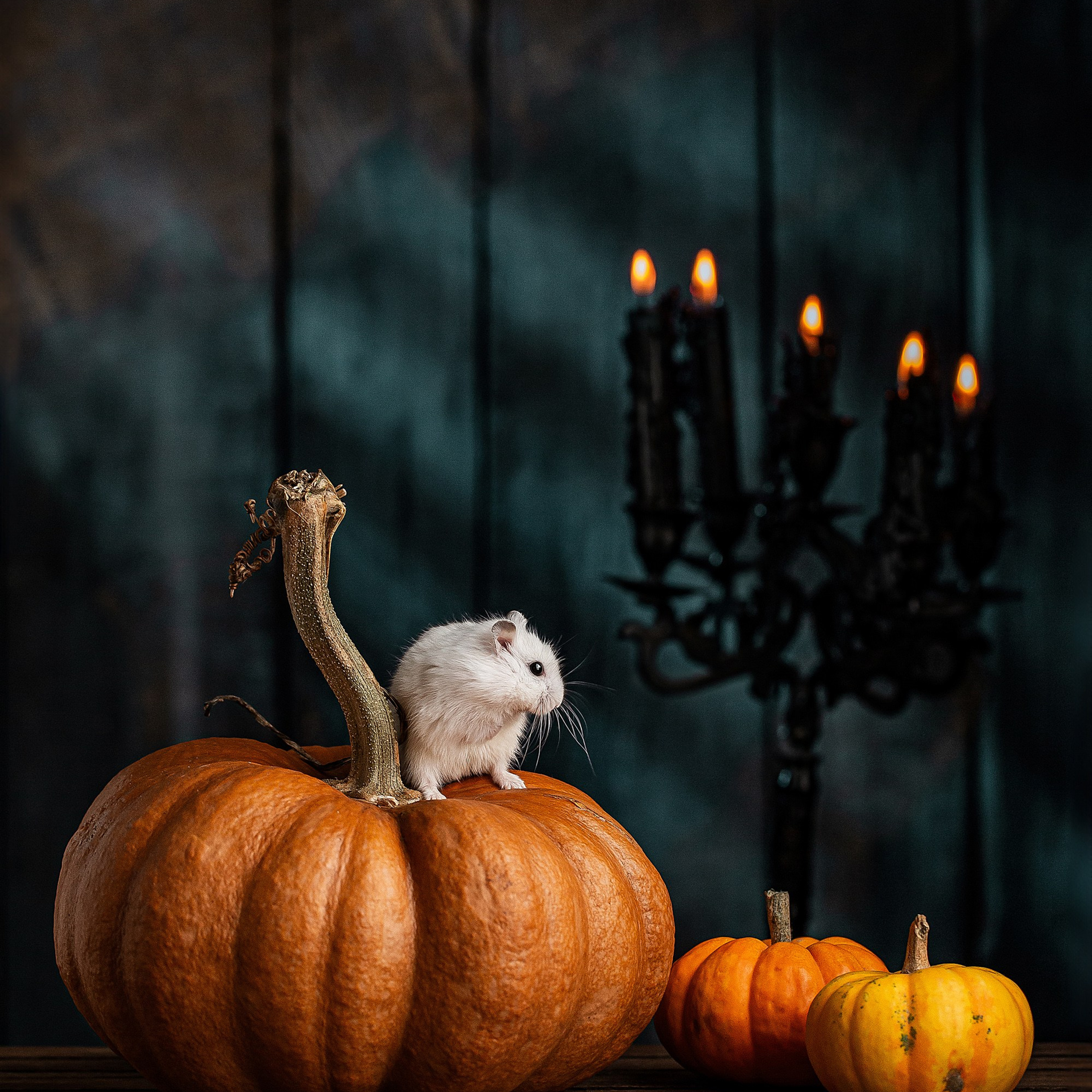
The Anatomy of the Visual — #6: Jungar Hamster and Pumpkins — A Living Still Life
A Classic Yet Living Visual in the Spirit of Halloween
This photograph was captured near the Halloween season, with...


